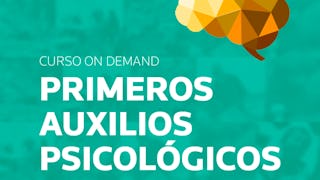Filter by
SubjectRequired
LanguageRequired
The language used throughout the course, in both instruction and assessments.
Learning ProductRequired
LevelRequired
DurationRequired
SkillsRequired
SubtitlesRequired
EducatorRequired
Explore the Opioid Crisis Course Catalog
 Status: Free Trial
Status: Free TrialJohns Hopkins University
Skills you'll gain: Advocacy, Training Programs, Health Systems, Health Policy, Primary Care, Education and Training, Community Health, Sanitation, Crisis Intervention, Community Development, Health Care Administration, Public Health, Train The Trainer, Behavioral Health, Policy Development, Mental and Behavioral Health, Community Organizing, Health Equity, Health Care, Cultural Sensitivity
 Status: Free Trial
Status: Free TrialNortheastern University
Skills you'll gain: Quality Assessment, Program Evaluation, Healthcare Industry Knowledge, Health Systems, Health Informatics, Change Management, Decision Support Systems, Health Care, Care Management, Patient Safety, Health Care Administration, Quality Improvement, Business Intelligence, Business Analytics, Performance Measurement, Health Policy, Scientific Methods, Business Process Automation, Payment Systems, Value Engineering
 Status: NewStatus: Free Trial
Status: NewStatus: Free TrialVanderbilt University
Skills you'll gain: Prompt Engineering, ChatGPT, Generative AI, Crisis Management, Productivity, Incident Response, AI Personalization, OpenAI, Artificial Intelligence, Personalized Service, Large Language Modeling, Business Ethics, Information Privacy, Personally Identifiable Information, Cross-Functional Collaboration, Threat Detection, Expense Management, Threat Modeling, Creative Thinking, Cyber Security Strategy

Universitat Autònoma de Barcelona
Skills you'll gain: Crisis Intervention, First Aid, Emergency Response, Emergency Services, Pediatrics, De-escalation Techniques, Psychology, Trauma Care, Mental Health, Stress Management, Disabilities, Working With Children, Patient Education And Counseling, Interpersonal Communications, Child Development, Cultural Sensitivity

Northwestern University
Skills you'll gain: Event Marketing, Marketing, Social Media, Media Relations, Marketing Strategies, Loyalty Programs, Brand Management, Event Planning, Public Relations, Revenue Management, Promotional Strategies, Strategic Partnership, Crisis Management
 Status: Free Trial
Status: Free TrialUniversity of California, Davis
Skills you'll gain: Adaptability, Resilience, Professional Development, Overcoming Obstacles, Self-Awareness, Cognitive flexibility, Emotional Intelligence, Personal Development, Relationship Building, Plan Execution, Crisis Management, Goal Setting
 Status: Free Trial
Status: Free TrialAmerican Psychological Association
Skills you'll gain: Mental and Behavioral Health, Mental Health Diseases and Disorders, Psychiatry, Behavioral Health, Clinical Psychology, Epidemiology, Pharmacology, Neurology, Demography, Mental Health, Psychotherapy, Psychology, Cultural Diversity

Johns Hopkins University
Skills you'll gain: Medical Prescription, Patient Education And Counseling, Pharmacology, Pharmacy, Pharmaceuticals, Chronic Diseases, Epidemiology, Injury Prevention, Medication Therapy Management, Mental and Behavioral Health, Health Policy, Community Health, Public Health

University of Toronto
Skills you'll gain: Mindfulness, Active Listening, Stress Management, Empowerment, De-escalation Techniques, Emotional Intelligence, Biology, Resilience, Self-Awareness
 Status: Free Trial
Status: Free TrialUniversidad Nacional Autónoma de México
Skills you'll gain: Social Justice, Sociology, Culture, Diversity Awareness, Cultural Diversity, Diversity Equity and Inclusion Initiatives, Socioeconomics, Cultural Responsiveness, Community Development, Conflict Management, Advocacy, Cultural Sensitivity, Family Therapy, Crisis Intervention, Public Policies
 Status: Free Trial
Status: Free TrialIE Business School
Skills you'll gain: Financial Policy, International Finance, Public Policies, Economics, Economic Development, Economics, Policy, and Social Studies, Market Opportunities, Business Economics, International Relations, Tax, Global Marketing, Policy Analysis, Socioeconomics, Demography, Business Risk Management, Crisis Management, Fiscal Management, Supply And Demand, Analysis, Financial Systems

Yale University
Skills you'll gain: Positivity, Mental Health, Goal Setting, Growth Mindedness, Stress Management, Resilience, Emotional Intelligence, Productivity, Self-Awareness, Compassion, Personal Development, Behavioral Health, Psychology, Mindfulness, Social Skills
Opioid Crisis learners also search
In summary, here are 10 of our most popular opioid crisis courses
- Foundations of Global Health: Johns Hopkins University
- Healthcare Trends for Business Professionals: Northeastern University
- Generative AI Cybersecurity & Privacy for Leaders: Vanderbilt University
- Primeros Auxilios Psicológicos (PAP): Universitat Autònoma de Barcelona
- Sports Marketing: Northwestern University
- Adaptability and Resiliency: University of California, Davis
- Disorders Due to Substance Use and Addictive Behaviors: American Psychological Association
- Opioid Epidemic: From Evidence to Impact : Johns Hopkins University
- Understanding and Managing the Stresses of Police Work: University of Toronto
- Claves para la igualdad de género: Universidad Nacional Autónoma de México










